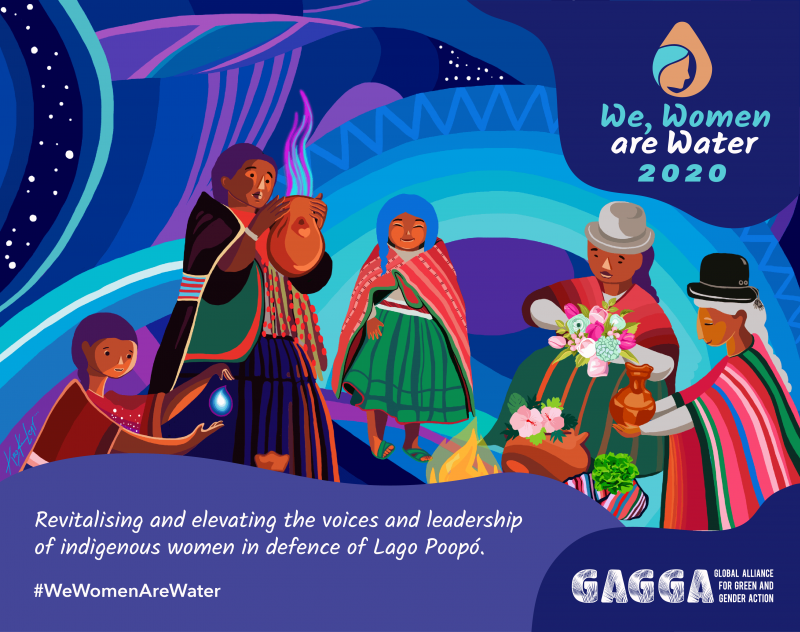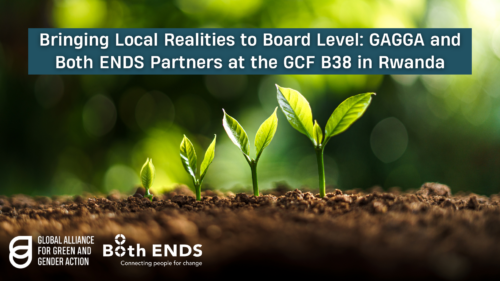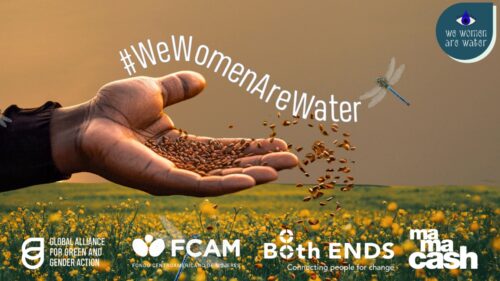We, Women are Water 2020: Chimpu Warmi in Lake Poopó

Lake Poopó, situated in Oruro, Bolivia, is also known as “Mama Qhocha,” a symbol of reproduction and a sacred place according to local beliefs. Women go to the lake to ask for water and rain in times of drought. Lake Poopó is the second largest lake in Bolivia.
However, this site has been affected by mining pollution, industrial systems, climate change and lack of proper attention. Oruro is a mining region and the government’s easing of mining regulations over the course of multiple administrations has led to RAMSAR sites (wetlands of international importance) not being properly protected. This crisis has increased the migration of the local communities that were sustained by Lake Poopó.
For women this is a very serious situation with a devastating environmental, economic and social impact. If Lake Poopó disappears completely, it means that an entire ecosystem will be destroyed. This will lead to the loss of hundreds of species of flora and fauna, and the disappearance of cultures that have existed in harmony with the lake for centuries.
In the face of this problem, the women of the Red Mujeres Indígenas Chimpu Warmi (the Chimpu Warmi Indigenous Women’s Network) have been building a working group made up of various actors to study the case of Lake Poopó and the impact that mining has had on this natural asset. Additionally they are educating and raising awareness among the population about the importance of caring for water sources as a way of preserving life in the communities.
Based on the information gathered, the network is raising demands with the government and local authorities of Oruro to take effective actions to ensure the preservation of Lake Poopó and thereby guarantee the life, cultural identity and permanence of future generations.
Copyright © 2020 GAGGA. Image may not be copied, printed, edited or otherwise disseminated for commercial use without express written permission of GAGGA. The use of this image in its original form is otherwise allowed if credit is provided to GAGGA.

Welcoming Anamika Dutt As GAGGA’s Planning, Monitoring, Evaluation & Learning (PMEL) Officer!
Anamika Dutt is a feminist MEL practitioner from India. Anamika believes that stories of change and impact are best heard…

Bringing Local Realities to Board Level: GAGGA and Both ENDS Partners at the GCF B38 in Rwanda
Last week Both ENDS participated in the 38th Board Meeting of the Green Climate Fund in Kigali, Rwanda, together with…

We Women Are Water – Call To Action To Support And Finance Gender Just Climate Action
Gender just climate action and solutions are in urgent need of your support Women, girls, trans, intersex, and non-binary people…
Subscribe to our newsletter
Sign up and keep up to date with our network's collective fight for a gender and environmentally just world.
